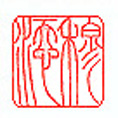— next extract

Flaming torches landed one after the other on the thatched roof of the house of Milo, the athlete. It took fire rapidly. The blaze soon worsened, since in some places where the heat was particularly intense, limestone walls became incandescent, giving intense light through the smoke. Some of them exploded, adding percussion to the roaring crackle of the flames and the rushing noise of upcurrents of hot air which here and there formed the billowing smoke into plumes reaching to the heavens.
The single door to the house and its courtyard was wide and heavy, made of a hard wood which could resist fire for some time, but it had been barred from the outside by the angry crowd which surrounded the house, and offered no hope of escape.
Forty men were in the courtyard when the fire took hold. But there was little hope for them, since the courtyard had porticoes of wooden construction, and trellises with climbing plants. These only fed the ravening flames.
Soon, those who had not already succumbed to the acrid smoke and choked to death, or who had not been felled by the exploding walls, were consumed by the flames and burned to cinders.
An observer in mid-air would have seen the crowd around this deadly pyre looking on their work, their fury now stilled, listening to the cries and moans from those within, sometimes heard through the cacophony of the fire. Then the crowd dispersed, perhaps with a sense of achieving a goal, but perhaps, for some, in shame at whatever rage had impelled them.
(1/1)